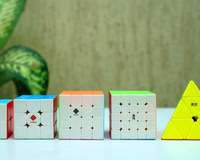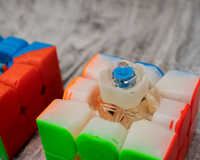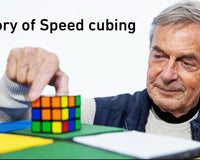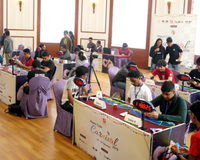The WCA sports 17 official events, with most being very different and requiring varied skill-sets. Practising these events and improving at them will therefore take up a lot of time, especially if you want to get better at multiple events before a competition. Here are a few tips to help better balance the practice of various events at once.
The easiest way to organize is to break events into batches or categories to then practice simultaneously. For example, 3x3, 4x4, and 5x5 in one group and skewb and pyraminx in the second group. This helps to reduce the number of events being focused on at once, allowing you to concentrate on improving in a select few events for a particular time.

Picking which events to practice with each other is also important, and this depends on the skill-sets required. Carry-over is a term used where techniques you learn for one event become useful in improving in another related event. Grouping together such related events can help streamline practice and compound your improvement in those events.
For example, the techniques used to make centres and edges in 4x4 are similar to those in all the larger cubes like 5x5 and 6x6 as well. Hence, practising NxN events together increases carry-over, so the skills you learn for one of the puzzles can be applied to many of them. 3x3 skills like F2L and last layer algorithms are very useful for NxN puzzles since they all have a 3x3 stage where those techniques can be applied.
Sometimes, it is also good to have variety. Practising 2 very different events at once might help you improve each of them better. Them being dissimilar would help keep them separate in your mind, so better focus can be achieved. I sometimes practice at smaller events like pyraminx, skewb, or 2x2 along with larger events like 5x5 or 6x6. Events that require a lot of attention, especially at the beginning when you are starting to learn the basic techniques, are better practised separately, such as 3BLD or 3x3 FMC.

Keep a very loose schedule of what you want to practice. This might also depend on upcoming competitions, where you can pick out and choose events you want better official times in and focus on those before the competition. The most important thing, however, is to enjoy the events you’re practising. Don’t keep going to an event if you feel bored or burnt out, taking a break by just doing mindless solves or doing something else is a great way to switch it up. Multiple event practice can be challenging at times, but breaking them into chunks, learning broad skills for many events, and having a constant variety are good ways to ensure you don’t get bored or burnt out. And always remember to have fun!
Pranav Prabhu

































